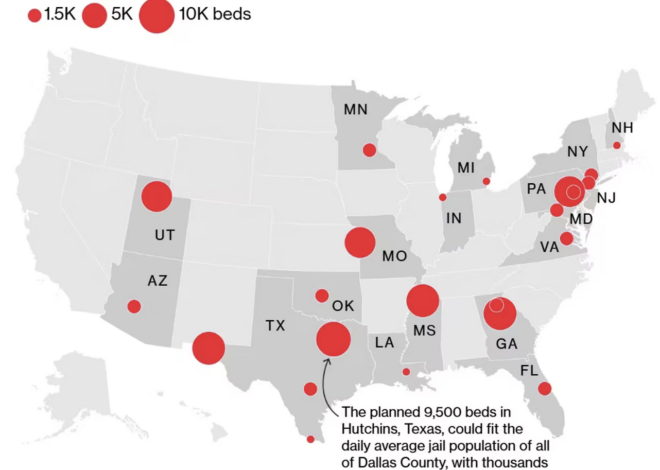Are Index Funds a Bubble?
Recently a friend reached out asking for my take on concerns raised in this article:
I hate these kind of requests, probably because every time this sort of hand wringing article appears, people want me to talk them down off the ledge.
Ordinarily, I ignore these requests. Guess I’m bored fielding them and reading this stuff. There’s nothing new in them and, if you’ve read my work, you already know my take.
All that said, given the personal connection, I responded. If you’re interested, here’s what I said in reply.
I’ve been sent this article before and so just skimmed it this time around. Overall, Lipstein does a balanced job, setting aside the click bait sub title, and the guy from Vanguard makes the right case, although not as strongly as perhaps he could have.
Let’s look at a bit of history for some perspective.
Bogle launched Vanguard and the first low cost index fund in 1975, and it is hard now to imagine just how egregious the fees and commissions around investing were. A gold mine for the guys selling active investments and individual stocks, a hosing for the investor. 5%+ loads (commissions) to buy funds or stocks were common. Same to sell them. Then funds typically charged 1-3% ERs (expense ratios) annually.
These investment guys are not dumb, and they immediately recognized the threat indexing represented to their gravy train. The attacks on indexing and Bogle were immediate and harsh as they tried to strangle indexing in its crib.
Legend has it that Ned Johnson, who owned and ran Fidelity at the time (his daughter does now), ran a series of ads calling indexing, among other things, “un-American”. Bogle had these ads framed and put up in his office. (Fidelity has since embraced indexing.)
Indexing got off to a slow start. While academics, largely at the University of Chicago, were laying out the intellectual foundations, at the time it was an unproven, if logical, concept in the real world. It is very counter intuitive to think just holding the index outperforms actively choosing winners and avoiding losers. But it does, and as the decades wore on the data proved this repeatedly and in all types of markets.
The worst fears of the financial industry were relentlessly realized. Commissions fell and then disappeared. ERs, even of active funds, fell to under 1%. ERs for index funds also dropped steadily.
Fast forward to today. My fund of choice, VTSAX, now has an ER of .04% and stock trading commissions are gone. Small investors like us have benefited enormously and billions of dollars now remain in our collective pockets. This is why I refer to Mr. Bogle as a fiscal saint.
Of course the attacks and fear mongering continue.
It is worth noting that those cited in the article as concerned about indexing being a bubble – Cathie Wood, Michael Burry, Peter Lynch, Elon Musk, David Einhorn, Carl Icahn, and Robert F. Kennedy Jr. – while being very smart people, have a dog in this fight. They are active managers, CEO of a public company and a politician.
Let’s look at some of the specific concerns raised:
1. Indexing has grown too large and has become a bubble.
The case is made that index funds hold minimal cash, while active funds typically hold ~5% cash. In a downturn, the index fund has to immediately sell shares to meet redemptions and this could cascade into a bursting bubble. The active fund has cash on hand to meet these redemptions, preventing a cascade. This is a bit laughable.
In times of corrections, drops of 10% or less, a fund’s cash on hand helps meet redemptions, as does the normal flow of new money coming in.
However, when the market takes a major plunge, both these sources for redemption are burned though and shares do need to be sold. This definitely has a cascading effect and is one of the factors that drives major market plunges further down. But this was true long before indexing was a gleam in anyone’s eye. If you want to hold enough cash to mitigate a market plunge, 5% ain’t gonna do it.
Currently, Warren Buffett holds ~190 billion/~21% in cash in Berkshire for example, and he doesn’t have to worry about redemptions.
If you want to hold enough cash to mitigate redemptions in a market crash think 50%, not 5%. Of course, if the market doesn’t crash (and crashes are rare), that cash will be a major drag on your performance. Which is why active managers don’t do it.
2. Active investors are needed to set the value of companies through their analysis of the business and trading activity. With indexing taking over the world this function is being lost.
Well, yes. And no.
Yes it is an important function but, no, indexing is not about to bury it.
Indexing, depending on the source you consult*, accounts for ~35% of equities. But remember, indexing has become very broadly applied. There are index funds tracking every conceivable sector you can imagine.
*(Estimates vary widely. Experts put passive investing’s share of the U.S. stock market anywhere between 15 and 38 percent.)
More useful might be the fact that the three biggest broad based index fund managers, BlackRock, Vanguard, and State Street, own ~25% of the S&P 500. Large for sure, but 75% is still in other hands.
Consider, too, that the market today is far larger than in 1975 (when indexing launched) and earlier. There is a far larger number of shares being traded by active managers today than before indexing arrived. The value setting function is alive an well.
3. That might be true today, but what happens if indexing takes over ever more of the market and active investors disappear?
Well, that might be a problem. But it’s never gonna happen:
A. Human nature being what it is, people are always going to think they can beat the market, and Wall Street has a vested interest in encouraging this belief. Consider the explosive growth of Robinhood and this:
B. If indexing were to grow to the point it interferes with establishing values for traded companies, the opportunity to take advantage of this disconnect would give active managers a genuine opening to outperform. As they did, they’d trumpet this success and investors would flock back to that side of the aisle.
OK, that’s enough for now. My fingers are tired.








